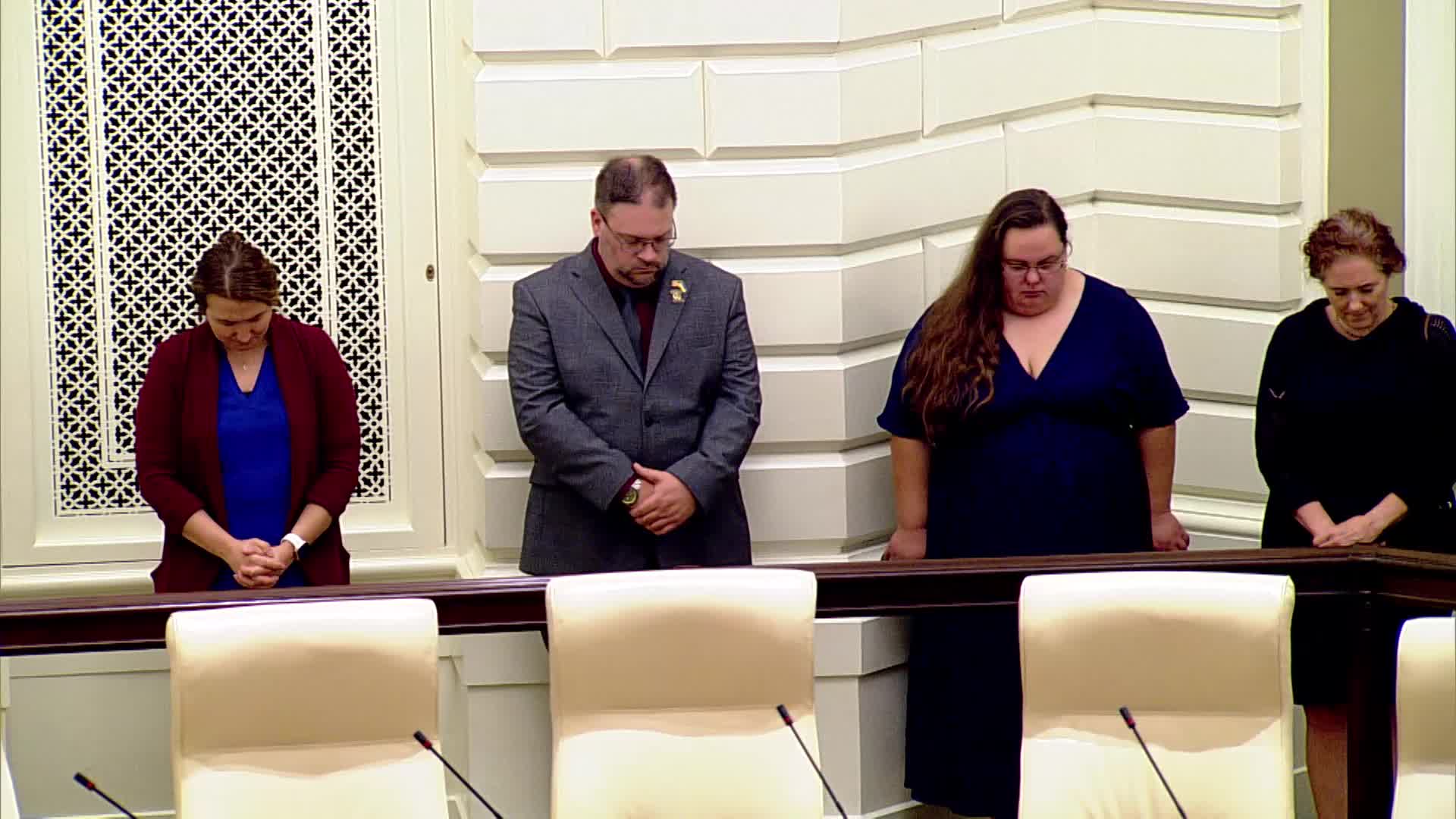Senate advances and enacts a batch of local bills including fisheries regulation and a town liquor license
Get AI-powered insights, summaries, and transcripts
Subscribe
Summary
The Massachusetts Senate passed and advanced multiple local bills and petitions, including S.2566 on the Gloucester Fisheries Commission and H.4273 authorizing an additional retail alcohol license for the town of Manor.
The Massachusetts Senate voted to pass several bills to be engrossed or enacted and to advance petitions for committee consideration.
On the floor the clerk read S.2566, "An Act further regulating the Gloucester Fisheries Commission," and H.4273, an act authorizing the town of Manor to grant an additional license for the sale of alcoholic beverages not to be consumed on the premises. The president announced that the question came on passing the bills to be enacted; senators responded by voice vote and the president said, "The ayes have it." The clerk recorded that the bills will be signed by the president and laid before the governor for her approbation.
The Senate also ordered several local measures to a third reading or passed them to be engrossed. Those items included a bill relating to the appointment of a treasurer/collector in the town identified in the transcript as House No. 2320 (appointment to treasurer/collector), and an act titled in the transcript as relating to stabilization funds in a town cited as House No. 4136 (title changed by the committee on bills in third reading). The clerk announced that the bills at third reading were passed to be engrossed.
The Senate took up a House bill establishing a sick leave bank for an employee of the Department of Developmental Services, House No. 4514; the rules were suspended and the bill was ordered to a third reading. A separate House petition from John J. Massey to establish a sick leave bank for David A. Russell, an employee of the Department of Correction, was received from the House; the Senate suspended Joint Rule 12 and referred the petition to the Committee on Public Service.
Most floor motions were resolved by unanimous-consent requests or voice votes; the transcript records "no objection" where unanimous consent was requested and records outcomes as "the ayes have it." The motions recorded in the transcript do not include roll-call tally counts.
These actions are procedural steps that move local bills and personnel-related sick leave requests forward in the legislative process; the measures will require the governor's approbation to become law where noted, and the petition referred to committee will be evaluated in that committee.
